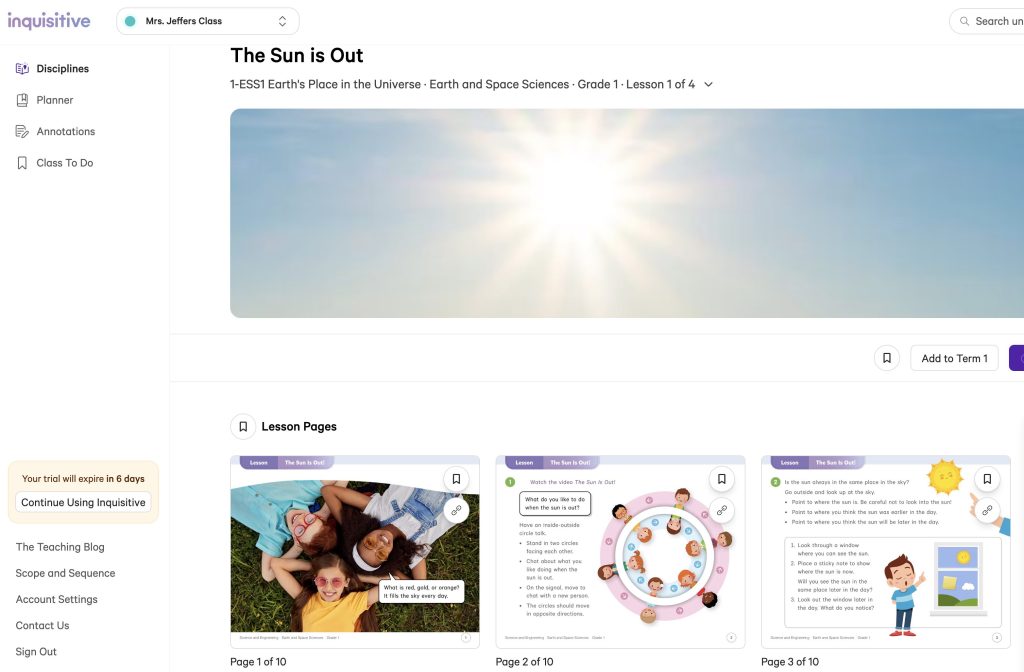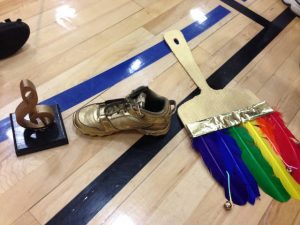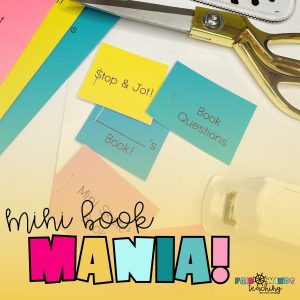What do you call an educated tube?… A Graduated Cylinder!
I know I made you laugh… now to the serious part! Let’s chat about the importance of a great Science Curriculum for Elementary School students! I have spent my last 7 summers writing a science curriculum for my county to share with all the elementary teachers in my district. I have written a science curriculum for 1st, 2nd and 3rd grade and loved every second of it. I think that we can all agree that one subject that plays a vital role in this foundation is science. However, I will be honest with you when I say that finding a great science curriculum to pair with your county’s standards is not an easy task. Until now… I have found the perfect tool to pair with all of your science curriculums. It’s called Inquisitive.us and I have been happily using the program in my 1st grade classroom this school year. It aligns with the standards I need to teach perfectly and is engaging for my students. I find science topics so fascinating and I love to find ways to make the content engaging for the little ones in my classroom. Elementary school is a critical time in a child’s education, where the foundation for future learning is laid. Science will always be a huge part of that.
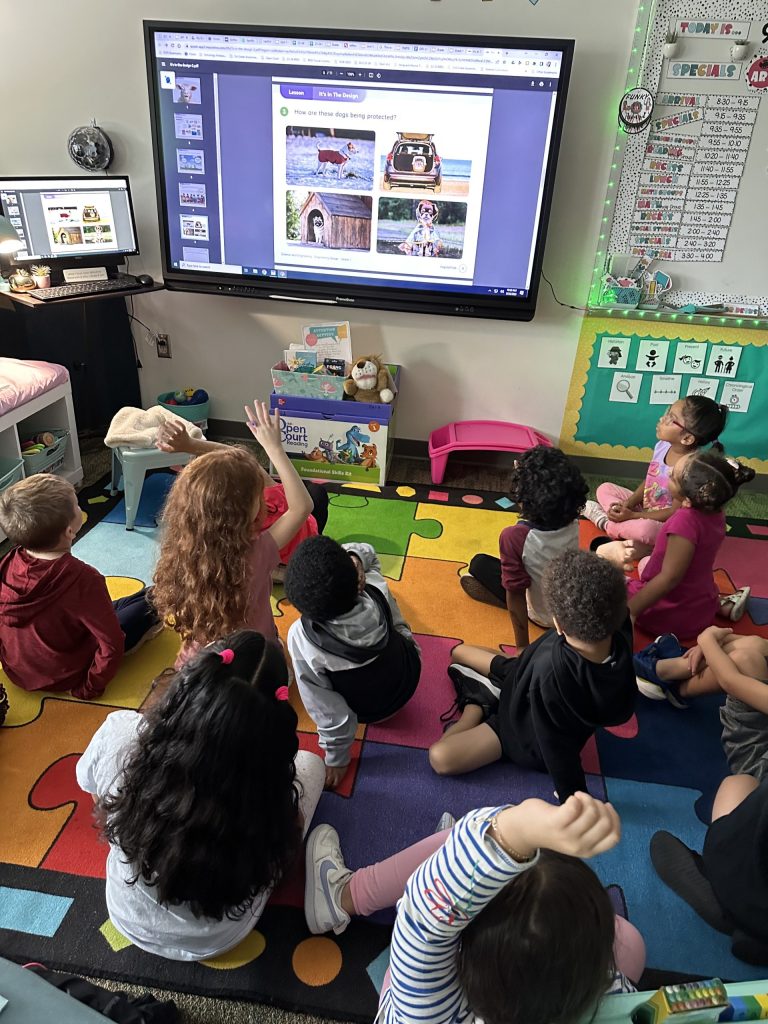
A well-designed science curriculum for elementary school students is essential for several reasons.
- Fostering Curiosity and Inquiry
Science is all about curiosity and asking questions. How fun! They get to work on asking questions and also beef up their speaking and listening skills too. A robust science curriculum encourages young learners to explore the world around them, ask questions, and seek answers. This process of inquiry not only nurtures their innate curiosity but also instills critical thinking skills. These skills will serve students well throughout their academic journey and in life, as they learn to think critically and solve problems. One of my favorite hands on tools are my Starting to STEAM bins to start their brains with the exploring piece before the day even begins.
- Building a Strong Foundation
The elementary school years are the perfect time to build a solid foundation in science. Concepts introduced during this period lay the groundwork for more complex topics in middle and high school. A well-structured science curriculum ensures that students understand fundamental principles, which they can later build upon as they delve deeper into scientific fields. Each lesson builds on each other, they can’t understand the plant and animal life cycle without first knowing all the parts of a plant.
- Real-World Relevance
A great science curriculum connects classroom learning to the real world. It helps students understand the relevance of science in their daily lives, from the food they eat to the technology they use. This connection between theory and practice not only makes learning more engaging but also helps students appreciate the role of science in solving real-world problems. I love being able to show my students real life pictures to show connections and build background knowledge, especially my students with multiple languages.
- Encouraging STEAM Interest
In an increasingly technology-driven world, the demand for STEAM (Science, Technology, Engineering, Art and Mathematics) skills is on the rise. A strong elementary science curriculum can spark interest in STEAM subjects early on, encouraging students to explore these fields further. This can lead to a greater likelihood of pursuing STEAM-related careers in the future, which are often associated with higher earning potential.
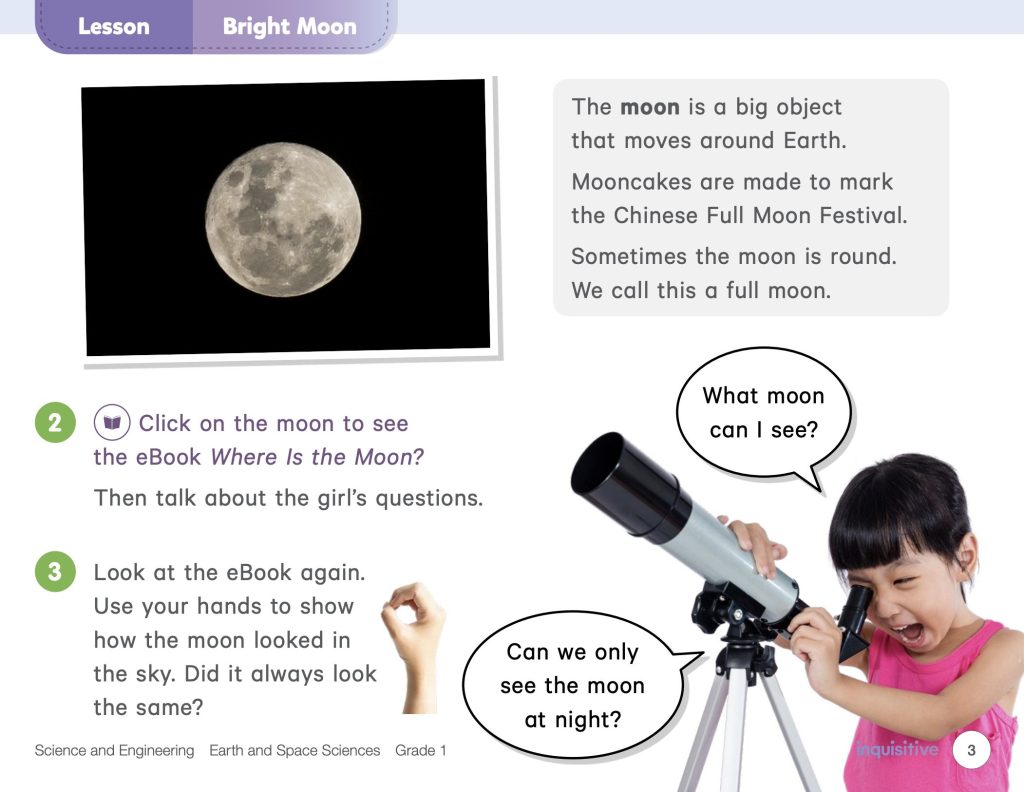
- Connection with the National Generation Science Standards (NGSS)
Crosscutting Concepts serve as a bridge for students to examine interrelationships among the four science domains: Physical Science, Life Science, Earth and Space Science, and Engineering Design. By explicitly introducing these concepts, such as “cause and effect,” to students, we enable them to cultivate a unified and scientifically-grounded perspective of the world that surrounds them.
- Fostering a Growth Mindset (which is super important for scientists)
A great science curriculum promotes a growth mindset, where students understand that intelligence and abilities can be developed through effort and learning. Science often involves experimentation and the possibility of failure, which teaches resilience and perseverance. These qualities are invaluable not only in science but in all aspects of life.
- Hands-on approach Lessons
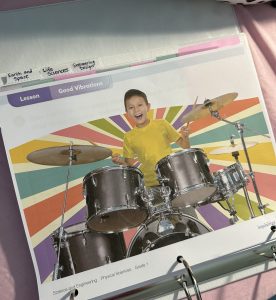
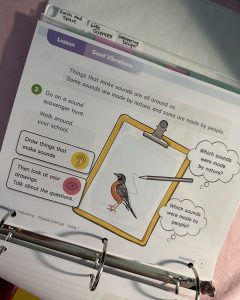
So how do we make sure our students have access to incredible science curriculum or supplemental resources?? You invest in Inquisitive.us and gain everything you need to teach K-5 Science. Inquisitive is a science program that aligns with the NGSS and has lessons in all four disciplines; Life Sciences, Physical Sciences, Earth and Space Sciences, & Engineering Design. I am currently using their program to teach Light and Sound to my 1st graders from their Physical Science units. They have summative assessments that allow me to keep grades and monitor their understanding and learning. I have been so eager to add this tool to my science curriculum tool box. I have been using these lessons to deepen my student’s understanding in concepts my county requires me to teach in science.
I was able to super easily print the unit lessons and create a resource teacher binder.
Let’s Get Started with Inquisitive
The first thing you need to do is SIGN UP for a FREE trial and explore all the goodies they have to offer! Then if you LOVE it as much as I do, you should purchase a 12 month membership for $49! But the BEST PART is, if you use my exclusive link, you will get $20 off, making it $29 for your FIRST YEAR, that’s less than 56 cents a week! You can have all of these guides, lessons, video, vocabulary, books and much more for ONLY $29!
You can explore the Inquisitive homepage by topic to find curriculum-aligned lessons or utilize our stimulus library to discover a wide range of high-quality interactive resources such as eBooks, videos, maps, and more.
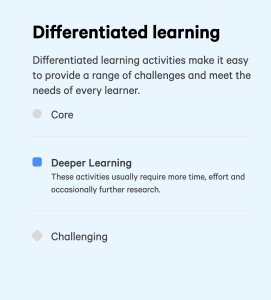
I am in love with their lessons! They integrate captivating content, providing all the necessary teaching resources in one convenient space. Each lesson comprises comprehensive pages enriched with thought-provoking questions and purposeful learning activities. I love the detailed photographs used in their slides for the students.
These lessons are thoughtfully crafted to offer flexibility, allowing you the choice to either implement them as-is or use them as a foundation for tailoring your own curriculum. There’s no obligation to complete a lesson in a single session, and the suggested timings are merely a reference, so feel free to adjust them to better suit your pace and needs. We all know that as teachers, it is super important to be able to pace a lesson throughout the
day and over multiple sessions. Each lesson contains engaging, Inquisitive stimulus materials: videos, eBooks, interactives, songs, maps and more.
Each lesson features questions categorized with a green circle, blue square, or black diamond, advancing from fundamental concepts to deeper understanding and more complex challenges. This inherent differentiation provides you with the versatility to adapt our lesson materials to cater to the unique needs of every student. My students are all learning at different ability levels, this feature is what sold me on Inquisitive.us!
Reasons why I LOVE Inquisitive!
I find that I have an abundance of resources readily available to me, making the planning process a breeze. From a wide array of assessments to user-friendly mapping tools, everything I need is right at my fingertips. The curriculum offers meticulously structured lessons, complete with stunning full-color graphics that greatly facilitate the planning process.
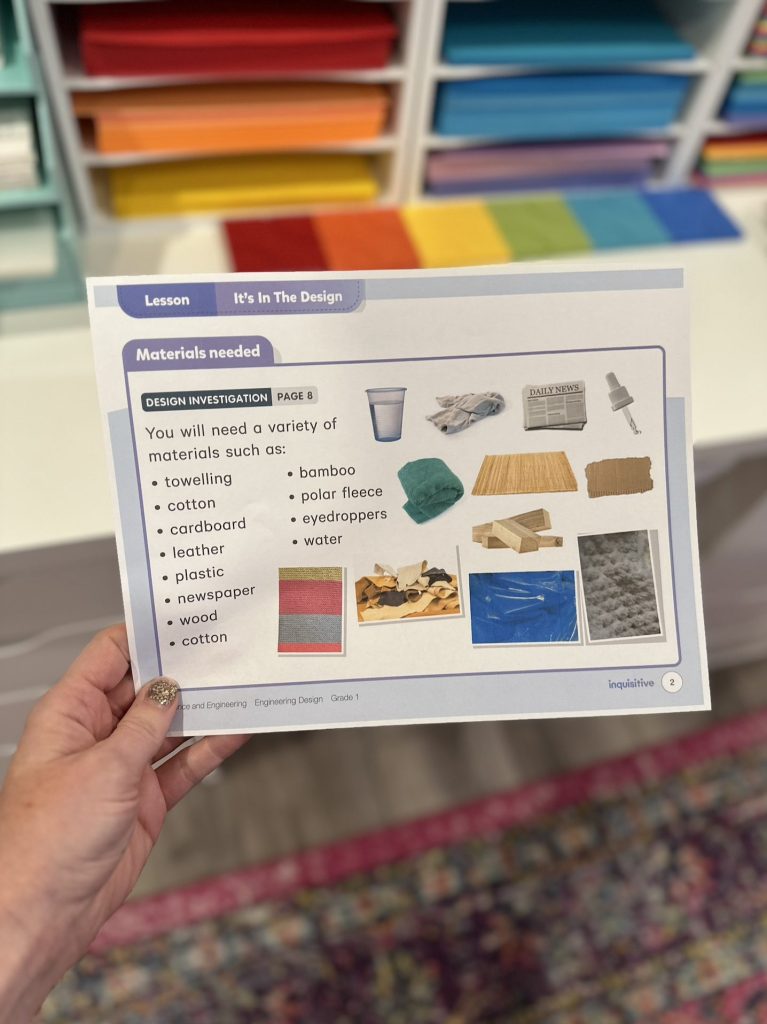
In a recent lesson centered on Engineering Design for 1st graders, we delved into the captivating world of Farm to Family concepts. Specifically, we explored how sheep can contribute to problem-solving through their wool. The lesson’s learning objectives were to help students identify pressing needs or problems that require solutions and guide them in developing and assessing simple design solutions.
In our county, we have a unique event known as “Fair Day.” This local county fair is such a significant occasion that students even enjoy a day off from school to participate. During this time, we placed a strong emphasis on Farm to Family lessons, and the Engineering Design lesson dovetailed seamlessly into our fair-themed curriculum. We even had the opportunity to connect the Inquisitive.us lesson to the fair field trip we got to experience. It made seeing the sheep being sheared even more memorable.

The students displayed remarkable enthusiasm while actively engaging in the creative process, inventing and testing solutions to address challenges, such as helping a little dog featured in the lesson. It was truly a hands-on learning experience that left a lasting impact on our young learners. This lesson served as a testament to the invaluable practical knowledge and skills our curriculum imparts, making it an essential component of our educational journey.
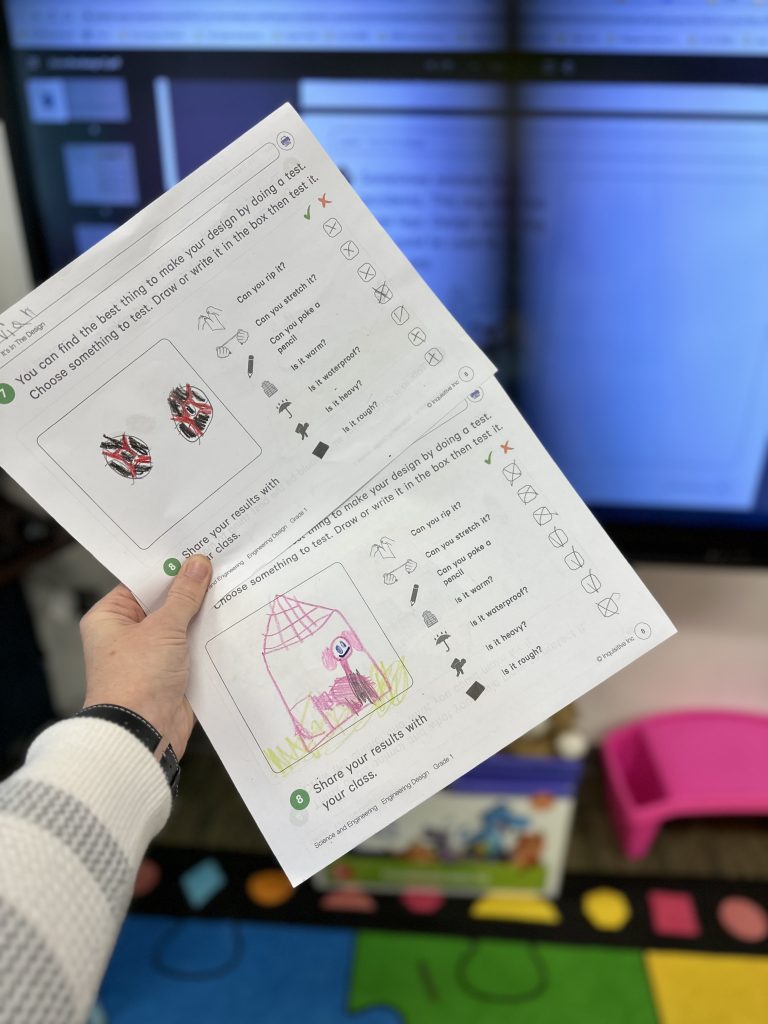
So…Are you Inquisitive?
To be Inquisitive means to have a strong inclination or desire to seek knowledge, explore, investigate, and ask questions. It involves a natural curiosity and a thirst for understanding the world around us. Inquisitive individuals are characterized by their inquiring minds, their eagerness to learn, and their tendency to explore and probe topics or situations in search of answers and insights. Being inquisitive is often associated with a genuine interest in acquiring knowledge and a willingness to engage in critical thinking and exploration. It is a valuable trait that can lead to personal growth, a deeper understanding of the world, and the discovery of new ideas and solutions.
Inquisitive.us has enhanced my teaching experience, offering a comprehensive science curriculum that aligns seamlessly with standards and captivates students. Its hands-on approach, flexibility, and rich resources make it an invaluable tool in preparing our young learners for a future enriched by science. So, are you inquisitive? It’s not just a trait; it’s a path to unlocking the boundless potential of every student’s mind.








